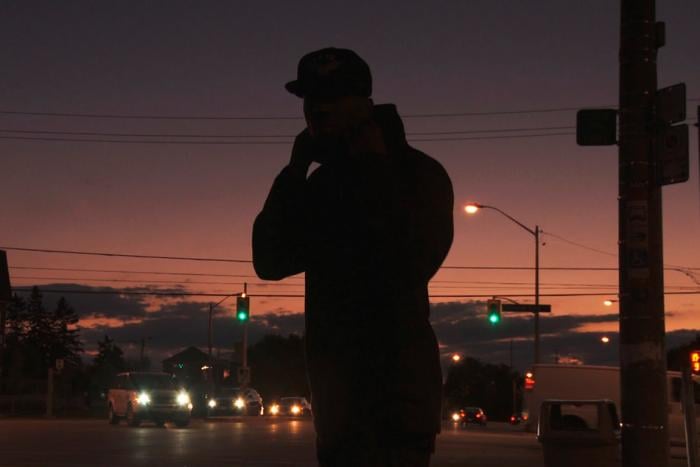A year ago, Paul Miller believed he was being corrupted by the Internet. But as it turns out, his enemy isn’t technology; it’s William Wordsworth.
In 2012, Miller, a writer for tech site The Verge, embarked on a stunt almost perfectly suited for the times: for one year, he would remain “off the internet.” This week, he returned with a long, intriguing post in which he reflected on his time offline, but you need only read the first line to gather the gist of what follows: “I was wrong,” says Miller.
Like so many of us, Miller believed that the Internet was a detriment to his attention span, his social life, and his basic humanity. It turned out to not to be true. While he found some things, like his ability to focus, improved, other problems we now associate with the web—mail overload, checking out socially, giving in to compulsive habits—were there in “the offline,” too. In fact, one of Miller’s greatest revelations is that the offline and the online are not only inextricably intertwined, but irretrievably so.
Yet, Miller’s desire to escape the pernicious influences of the newfangled is hardly new. In fact, there’s a case to be made that imagining an unsullied alternate space that exists “just over there” is endemic to, and maybe even constitutive of, modern Western culture itself. It is a phenomenon perhaps crystallized by the Romantic poets and their fascination with the pastoral, the pristine countryside not yet ruined by the industrial revolution. Though there are many reasons to both adore and condemn Keats, Coleridge and their ilk—they are, after all, partly responsible for the obsession with individualism—we also borrow from them the veneration for the natural, the pure, the untouched, whether the rolling hills of the Lake District, or, as Wordsworth condescendingly thought, the “simple folk” who dwelled there.
In 21st century, however, that utopian wish is no longer about meadows free from chimneystacks, but mental horizons bereft of distractions, workspaces and minds unchained from the clutter and clamour assumed to be inherent in screens. If Miller’s experiment proved anything, it is that in our time, the offline is the new pastoral.
It’s a phenomenon clearly part of a larger trend, and it’s one so instantly recognizable that you can evoke it simply by uttering the term “mason jar.” The fetishization of purity and the past extends far beyond digital technology, and is now bound up in the turn toward the organic, the artisanal, and the handmade, a seeming attempt to re-attach the self, and perhaps the soul, to a reality and authenticity from which we have become alienated.
But if there is a lesson to be learned from Miller, it is that retreating to a particular definition of authenticity is actually just hiding in one half of an inextricably linked binary. To move to the country and call what you find there true relies upon the existence of the city. To say the offline is more human or more peaceful is to look at it from the ubiquity of “the online.” There is no “escape” from the things we say are corrupting us. Instead, there is only reprieve—and as Miller’s experiment shows, even that’s not all it’s cracked up to be.
What makes things complicated is that in the 21st century, the long tradition of craving authenticity has become strangely caught up in the things people once said were inauthentic: consumerism, conspicuous consumption, and of course, capitalism. It’s not as if broad swaths of lower-income neighbourhoods across Europe and North America have suddenly become enamoured with organic farmer’s markets. Figuring out where the desire for the authentic comes from is no simple task, because it is now instilled in us from sets of competing interests. What do you do when the environmentalist and the car commercial are selling you the same vision?
All that said, it would be too easy and too neat to simply condemn the trend—to screw up one’s face and say “look at all those silly authenticity seekers, craving some mythical thing that doesn’t exist.” Rather, what the phenomenon needs is the doubled vision of a sympathetic heart and sharp-edged critical faculty. We have always sought a mythical purity, have always imagined that just over the horizon is the utter erasure of the very building blocks of modernity itself: the city; technology; the screen; the present. What texture and tenor that imagining now takes on is itself a collective utopian dream to be parsed and analyzed, a set of desires that say something profound about the day-to-day feeling of being alienated from something we have never experienced—and cannot, because it does not exist. Some weight needs to be given to a general feeling that something is missing.
And yet, at the same time at which we engage in a forgiving self-critique, we cannot run from the fact that authenticity is itself a myth, an elaborate blank signifier for any number of disparate, often contradictory ideas. Maybe we already stitched into the things we wish to run from, and rather than escape, are actually just looking for new ways to relate to them. If that’s true, then the thing that corrupts us is not the screen or the mass-produced good, but rather, the idea that we either can or should want to remove ourselves from the stuff that makes up modernity. There’s something profoundly off about immersing and saturating ourselves in the ebb and flow of the contemporary while forever dreaming of exploding the entire thing—as if what we are lacking is not the unsullied past, but the wherewithal to grapple with the way the present is forever slipping into an unknowing future.






